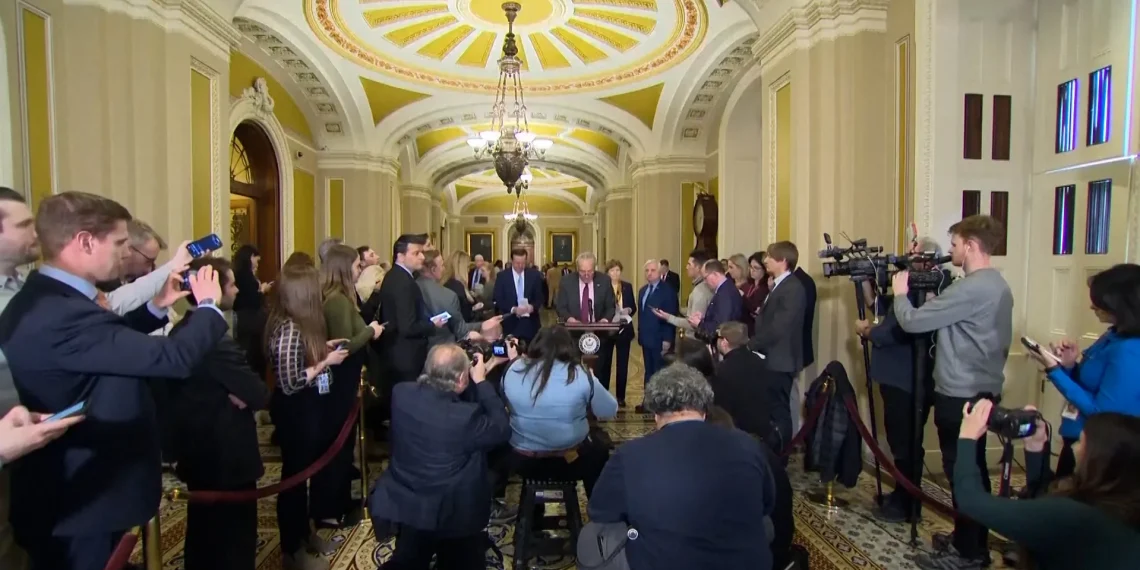Senator Chris Murphy is optimistic that a bipartisan deal on border security could reach the Senate floor soon, with key details approaching finalization. The deal’s components include new emergency authority for the president to shut down the border, reforms to the asylum system, and expedited work permits. Murphy revealed that the text of the compromise is being finalized, and the bill could potentially be ready for the Senate vote in the coming days.
President Biden expressed support for the emerging deal, signaling a willingness to embrace more stringent border policies than previously considered.
This includes the new authority allowing the president to shut down the border between ports of entry when unlawful crossings reach high levels. The proposed deal aims to reform the asylum system, providing quicker resolutions to cases, and expediting work permits.
House Speaker Nancy Pelosi endorsed the compromise, acknowledging it as a negotiation and compromise in the absence of comprehensive immigration reform possibilities with the current Congress. The deal’s significance is heightened as it is tied to funding for Ukraine amid its conflict with Russia.
However, the Republican Party is grappling with internal divisions over the potential compromise, exacerbated by former President Donald Trump’s attempts to undermine the deal.
Some GOP members, including Senator James Lankford, are cautiously optimistic, highlighting positive initial feedback. Yet, Senator Rick Scott insists on tying the bill to another measure to ensure Biden complies, reflecting the GOP’s reluctance to fully support the deal.

As negotiations intensify, the stakes remain high, given the link between the border deal and funding for Ukraine. Failure to reach an agreement not only leaves immigration as a political issue for exploitation but also jeopardizes support for Ukraine in its conflict with Russia.
Amid the ongoing debate, House Republicans have taken a divisive step by introducing articles of impeachment against Homeland Security Secretary Alejandro Mayorkas, further illustrating the complexities surrounding the Biden administration’s border policies.





